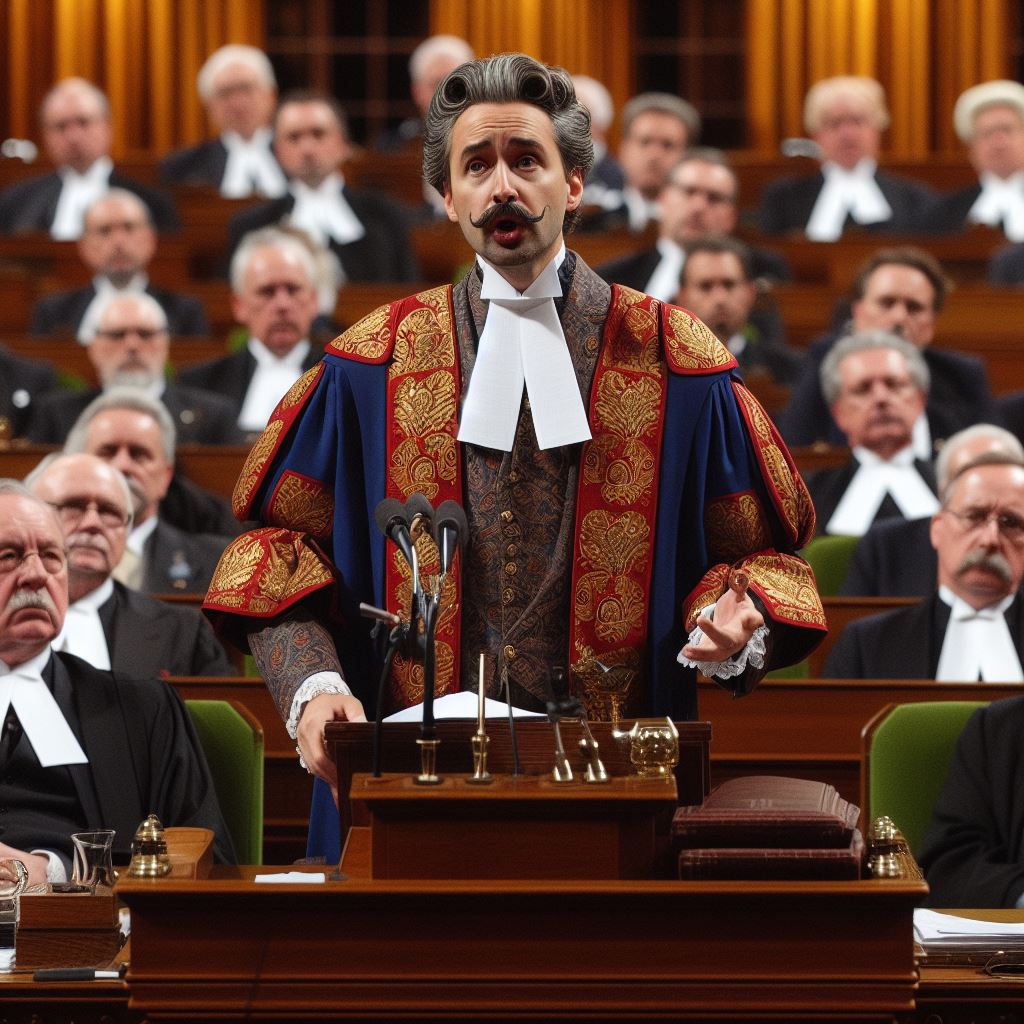Introduction
Navigating government policies as an analyst is crucial to understanding and succeeding in various industries.
Analysts must be aware of these policies and their implications to provide accurate insights.
Government policies have a profound impact on industries, shaping regulations, market conditions, and business opportunities.
Analysts must comprehend these policies to assess risks and identify growth potential accurately.
Analysts face numerous challenges when navigating government policies.
Firstly, policies can be complex and changing, requiring constant monitoring and analysis.
Secondly, understanding the intent behind policies is crucial for accurate interpretation. Thirdly, varying policies across regions add complexity to the analysis.
Additionally, analysts need to interpret policy language effectively, deciphering its impact on businesses and markets.
They must also consider political factors influencing policy creation and modification.
Identifying potential loopholes or unintended consequences is another challenge that analysts encounter.
Moreover, outdated policies may hinder innovation and growth, making it critical for analysts to suggest necessary reforms.
Furthermore, diverse stakeholder interests influence policy-making, necessitating effective engagement and negotiation skills for analysts.
In short, analysts play a vital role in navigating government policies as they provide insights that enable businesses to adapt and thrive.
Understanding policies and overcoming the associated challenges empowers analysts to provide accurate assessments and strategies for success.
By staying abreast of policy changes and understanding their implications, analysts can guide businesses towards compliance and capitalize on emerging opportunities.
Understanding Government Policies
Government policies and their role in shaping industries and businesses
Government policies play a crucial role in shaping industries and businesses.
They are a set of rules and guidelines established by the government to regulate various aspects of society, including the economy, environment, and social issues.
Analysts have the task of navigating through these policies to help businesses make informed decisions.
In this section, we will explore the types of policies analysts frequently encounter and discuss the process of policy creation.
Types of Policies Analysts Encounter
Analysts come across various types of government policies during their work.
These can include regulations, laws, guidelines, directives, and initiatives.
Each type serves a specific purpose and has a different impact on businesses and industries.
Regulations, for example, are specific rules that must be followed, while laws are enforceable by the judiciary.
Guidelines, on the other hand, provide recommendations on best practices.
Understanding the differences between these policy types is essential for analysts as it helps them determine the level of compliance required from businesses.
Unlock Your Career Potential
Visualize a clear path to success with our tailored Career Consulting service. Personalized insights in just 1-3 days.
Get StartedIt also enables analysts to interpret the implications of these policies accurately.
The Process of Policy Creation
The creation of government policies involves several stages.
Typically, it begins with the identification of the issue or problem that requires governmental intervention.
This is followed by research and analysis conducted by policy experts who gather relevant data and information.
Based on this research, policy options are developed and carefully evaluated to determine their feasibility and potential impact.
Once a policy option is chosen, it goes through a consultation process where feedback is obtained from stakeholders, including industry experts, businesses, and the public.
The final policy is then drafted, reviewed, and undergoes approval by relevant governmental bodies.
It is crucial for analysts to stay informed about the different stages of policy creation to anticipate changes that may affect their industry.
Staying Informed About New Policies
Analysts must actively stay up-to-date with new policies to provide accurate insights and advice to businesses.
There are several ways analysts can accomplish this.
One method is to regularly monitor government websites and official publications, which often provide information about upcoming policies and their implementation details.
Additionally, analysts can subscribe to newsletters and mailing lists from government agencies and industry associations.
These sources often provide updates and summaries of new policies, making it easier for analysts to stay informed without conducting extensive research.
Attending industry conferences, workshops, and seminars is another effective way for analysts to learn about upcoming policies and interact with policymakers.
These events provide valuable opportunities to ask questions, share concerns, and gather insights from experts in the field.
Lastly, analysts should also cultivate relationships with industry contacts, including government officials, industry leaders, and lobbyists.
These connections can provide valuable information and insights into new policies that may not be publicly available.
Government policies significantly impact industries and businesses.
Analysts have the responsibility of navigating through these policies to ensure businesses comply and make informed decisions.
By understanding the different policy types, staying informed about the policy creation process, and actively seeking information from various sources, analysts can effectively guide businesses in navigating the ever-changing landscape of government policies.
Read: Politician Salaries: A Canadian Overview
Researching and Analyzing Policies
When it comes to navigating government policies, thorough research and analysis is key.
Tips on how to effectively research government policies
Here are some tips on how to effectively research and analyze policies:
Use reliable sources
Government websites are a great starting point for finding policy information.
They provide official documents and updates on current policies. Industry associations and professional networks also offer valuable insights.
Dig deep into policy documents
It’s important to go beyond the surface and analyze policies in depth.
This means reading through the entire document and understanding its implications for different stakeholders.
Look for data and statistics
Data and statistics provide evidence-based support for policy analysis.
Look for research reports, surveys, and studies that present relevant data to back up your analysis.
Identify key stakeholders
Policies often have different implications for various stakeholders.
Identify who these stakeholders are and consider their perspectives when analyzing a policy.
Consider historical context
Understanding the historical context of a policy can provide valuable insights into its development and purpose.
Research previous policy changes and their impact to get a comprehensive understanding.
Look for expert opinions
Experts in the field can provide valuable insights and analysis of policies.
Look for reputable experts who have published articles, reports, or have been featured in discussions.
Compare policies across different jurisdictions
Comparing policies across different jurisdictions can provide a broader perspective and help identify best practices.
Look for similarities and differences in policies and their outcomes.
Stay updated
Policies can change, so it’s important to stay updated on the latest developments.
Subscribe to newsletters, follow relevant social media accounts, and regularly check government websites for updates.
Seek clarification
If you come across any ambiguities or uncertainties while researching a policy, reach out to relevant authorities for clarification.
This can help ensure that your analysis is accurate.
Collaborate with others
Collaborating with colleagues or joining professional networks can provide different perspectives and enhance your understanding of policies.
Share ideas, insights, and analysis to collectively navigate government policies.
By following these tips, you can effectively research and analyze government policies, ensuring that you have a comprehensive understanding of their implications and impact on various stakeholders.
Read: Ethics in Policy Analysis: A Critical Look
Networking and Collaboration
The importance of building relationships with government officials and policymakers
Building relationships with government officials and policymakers is crucial for analysts to navigate government policies effectively.
By establishing these connections, analysts can gain insights into the decision-making process and have a voice in shaping policies that impact their industry.
The benefits of collaborating with other analysts and industry experts to understand policies better
Collaboration with other analysts and industry experts is also valuable in understanding policies better.
By pooling knowledge and expertise, analysts can identify trends, anticipate changes, and develop comprehensive strategies to navigate government policies successfully.
Suggestions on how analysts can network and engage with relevant stakeholders
Here are some suggestions on how analysts can network and engage with relevant stakeholders:
- Attend industry conferences and events: Participating in conferences and events related to their industry provides analysts with opportunities to interact with government officials and policymakers.
- Join professional associations: Becoming a member of professional associations allows analysts to connect with peers, policymakers, and industry experts through networking events and forums.
- Engage in online communities: Analysts can join online platforms, such as LinkedIn groups or industry forums, to engage in discussions with government officials and policymakers.
- Request meetings: Analysts can proactively reach out to government officials and policymakers to request meetings or interviews to discuss policy matters relevant to their industry.
- Participate in policy consultations: By actively participating in policy consultations, analysts can provide valuable insights and suggestions directly to government officials and policymakers.
- Collaborate on research projects: Collaborating with other analysts and industry experts on research projects enables the exchange of knowledge and perspectives, leading to a better understanding of policies.
- Host roundtable discussions: Organizing roundtable discussions with government officials, policymakers, and relevant stakeholders allows analysts to foster dialogue and exchange ideas.
- Contribute to thought leadership: Analysts can establish their credibility and influence by publishing articles, white papers, or reports that offer valuable insights into government policies.
- Maintain regular communication: Building and maintaining relationships require regular communication. Analysts should stay in touch with government officials and policymakers by sharing relevant updates and insights.
- Be proactive and adaptable: Analysts should actively seek opportunities to engage with government officials and policymakers, adapt to changes in policies, and demonstrate their expertise in navigating government policies.
Networking and collaboration play a vital role in helping analysts navigate government policies effectively.
By building relationships, engaging with stakeholders, and collaborating with industry experts, analysts can gain a deeper understanding of policies, contribute to shaping them, and develop strategies to thrive in a complex regulatory environment.
Read: Policy Analysts and Climate Change Policies

Evaluating Policy Impact
When it comes to navigating government policies, analysts play a crucial role in evaluating their impact on industries and businesses.
By assessing the effectiveness and potential consequences of policies, analysts help organizations make informed decisions.
In this section, we will discuss methods for evaluating policy impact, explain how analysts can assess the effectiveness and potential consequences of policies, and highlight the significance of measuring policy outcomes and identifying areas for improvement.
Methods for Evaluating Policy Impact
- Economic Analysis: Analysts can conduct economic analyses to evaluate the impact of government policies on industries and businesses. This involves studying the costs and benefits of policies and examining their effects on market dynamics.
- Data Collection: Analysts rely on data collection to measure the impact of policies. They gather relevant information, such as financial data, market trends, and consumer behavior, to assess the effects of government regulations on different sectors.
- Case Studies: Analyzing case studies allows analysts to understand how specific government policies have impacted industries and businesses in the past. By examining real-life examples, analysts can draw insights and identify potential consequences of new policies.
- Stakeholder Interviews: Analysts often conduct interviews with various stakeholders, including industry experts, business owners, and policymakers, to gather diverse perspectives on policy impacts. These insights help in evaluating the effectiveness of policies and identifying areas for improvement.
Assessing Effectiveness and Consequences of Policies
Analysts employ several strategies to assess the effectiveness and potential consequences of government policies.
- Cost-Benefit Analysis: By conducting a cost-benefit analysis, analysts weigh the costs and benefits of policies. They compare potential outcomes and estimate economic, social, and environmental impacts.
- Policy Simulation: Analysts use policy simulation models to forecast the effects of policies on industries and businesses. These models help in understanding the long-term consequences and potential outcomes.
- Regression Analysis: Regression analysis enables analysts to analyze historical data and identify the relationship between policy interventions and industry performance. This helps in assessing the effectiveness of policies.
- Comparative Studies: Analysts compare the impacts of similar policies implemented in different regions or countries. This allows them to identify best practices and learn from the experiences of others.
The Significance of Measuring Policy Outcomes and Identifying Areas for Improvement
Measuring policy outcomes and identifying areas for improvement is crucial for policymakers and businesses alike. Here’s why:
- Evidence-Based Decision Making: Measuring policy outcomes provides policymakers with evidence to support decision making. It allows them to understand the effectiveness of their policies and make informed adjustments based on the data.
- Accountability and Transparency: Measuring policy outcomes ensures accountability and transparency in governance. It enables policymakers to demonstrate the impact and effectiveness of their actions to the public and stakeholders.
- Business Planning: For businesses, measuring policy outcomes helps in anticipating potential impacts on their operations. It allows them to adapt their strategies, mitigate risks, and identify new opportunities.
- Evidence for Advocacy: Measuring policy outcomes provides organizations and advocacy groups with evidence to support their positions. It allows them to advocate for necessary policy changes based on the real-world impact on industries and businesses.
In essence, evaluating policy impact is a crucial part of navigating government policies.
Analysts play a vital role in assessing the effectiveness and potential consequences of policies, allowing industries and businesses to make informed decisions.
By measuring policy outcomes and identifying areas for improvement, analysts contribute to evidence-based policymaking and help organizations thrive in a complex regulatory environment.
Read: Policy Analysis in Healthcare: A Deep Dive
Adapting to Changes in Policies
Government policies are constantly evolving, making it crucial for individuals and businesses to stay updated on these changes.
Failure to adapt quickly and make informed decisions can have far-reaching consequences.
In this section, we will discuss the dynamic nature of government policies, strategies for adapting to policy changes, and the role of analysts in guiding businesses through these shifts.
The Dynamic Nature of Government Policies
Government policies, whether related to taxation, regulations, or industry-specific guidelines, are not set in stone.
They are subject to continuous review and revision in response to changing circumstances, societal needs, or political influences.
This dynamic nature demands that individuals and organizations remain vigilant in tracking policy changes.
One significant reason for the ever-changing nature of government policies is the need to address emerging challenges and new opportunities.
As societies evolve, governments must adapt their policies to address issues such as climate change, technological advancements, and social inequalities.
Ignoring these developments can lead to missed opportunities or even legal consequences.
Strategies for Adapting to Policy Changes
To navigate the often complex and uncertain landscape of policy changes effectively, individuals and businesses can employ several strategies:
- Stay Informed: Regularly monitor government websites, industry publications, and professional networks to stay updated on policy developments. This information can help anticipate changes and start preparing accordingly.
- Network: Engage with industry peers, policymakers, and experts to gain insights into upcoming policy changes firsthand. Joining professional associations and attending conferences can facilitate networking opportunities and provide access to reliable information sources.
- Seek Professional Advice: Analysts with expertise in government policies can assist businesses in understanding the implications of policy changes and devising suitable strategies. Their insights can significantly reduce uncertainty and guide decision-making processes.
- Scenario Planning: Develop contingency plans by analyzing different policy scenarios. Assess the potential impact of each scenario on your business operations, finances, and stakeholders. This proactive approach enables prompt action when policy changes occur.
- Advocacy: Engage in advocacy efforts by providing feedback and suggestions to policymakers. By participating constructively in the policy-making process, individuals and businesses can influence policies that align with their interests and objectives.
The Role of Analysts in Navigating Policy Changes
Analysts play a crucial role in assisting businesses in navigating policy changes.
Their expertise in analyzing government policies, understanding their implications, and predicting potential outcomes can provide valuable guidance to decision-makers.
Analysts can help identify opportunities that arise from new policies, guide businesses through any required changes in processes or strategies, and mitigate risks associated with non-compliance.
They can provide essential insights into the political landscape, helping businesses understand the driving forces behind policy changes.
Moreover, analysts can analyze the competitive landscape and identify how policy changes may affect various industries.
This information allows businesses to make informed decisions about entering new markets, diversifying their offerings, or adapting their operations to take advantage of favorable policy environments.
In general, adapting to changes in government policies is crucial for individuals and businesses.
By staying informed, networking, seeking professional advice, scenario planning, and engaging in advocacy, individuals and organizations can navigate policy changes effectively.
Analysts play a vital role in providing guidance and insights to businesses, enabling them to make informed decisions in ever-evolving policy landscapes.
Uncover the Details: Firefighting Tech Advancements in 2024
Conclusion
Navigating government policies is crucial for analysts to excel in their field.
By summarizing the key points, we can emphasize the importance of government policy awareness.
It is imperative for analysts to have a thorough understanding of policies in order to provide accurate analysis and guidance.
To stay informed, analysts must continuously collaborate with experts in the field and actively seek out opportunities to improve their skills.
It is only through a comprehensive knowledge of government policies that analysts can effectively navigate the complex landscape of regulations and make informed decisions.
As the government continues to introduce new policies and regulations, analysts must be proactive in their approach.
Moreover, by staying up-to-date, collaborating with peers, and continuously improving their skills, analysts can ensure their success in navigating government policies and providing valuable insights to their clients and organizations.




